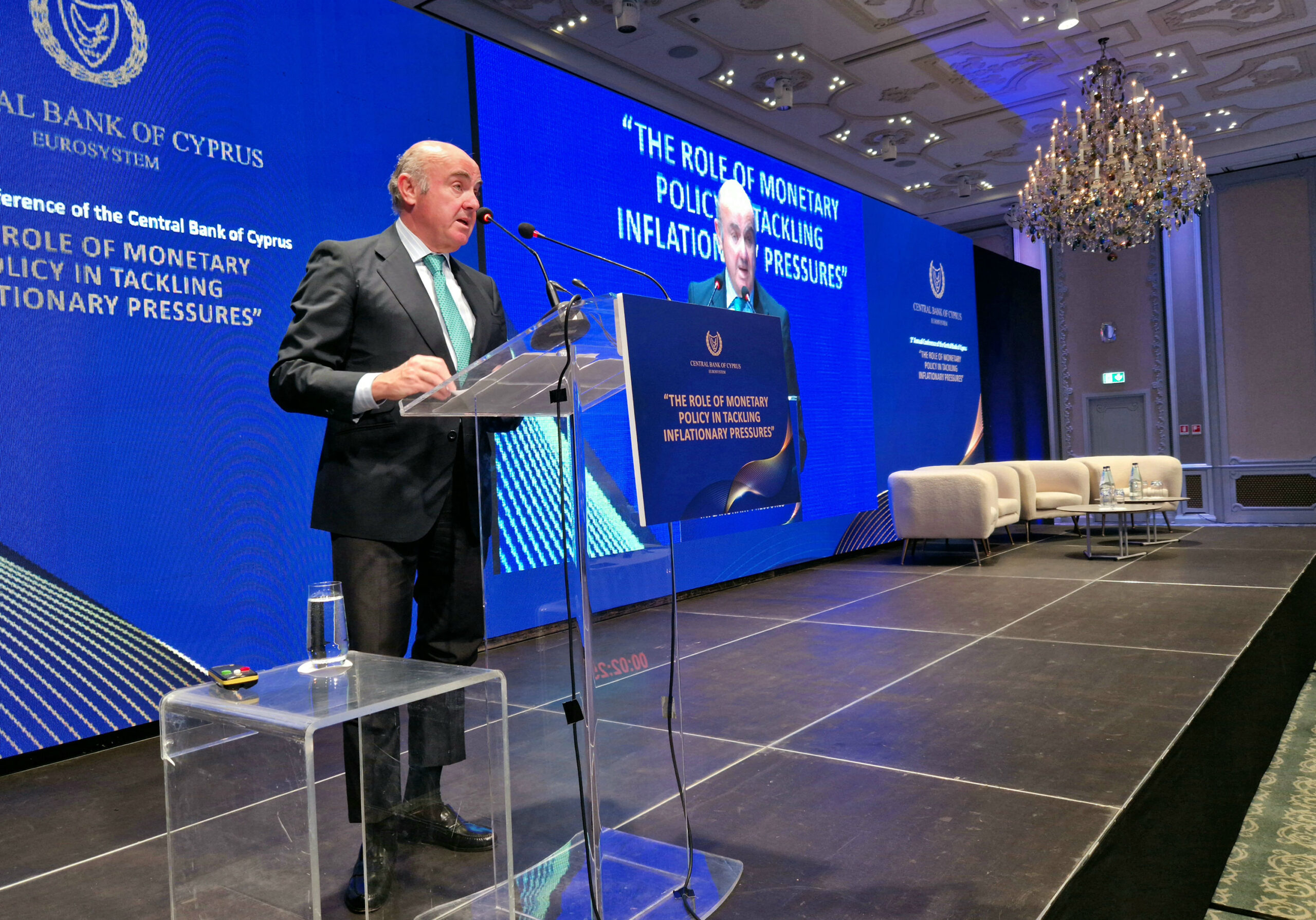The European Central Bank is determined to promptly ensure that inflation returns to its 2% medium-term target, said ECB Vice-President Luis de Guindos.
In his keynote speech at a Central Bank of Cyprus conference in Limassol, de Guindos said that the September ECB staff macroeconomic projections see average inflation at 5.6% in 2023, 3.2% in 2024 and 2.1% in 2025.
“Compared with the June Eurosystem staff projections, this is an upward revision for 2023 and 2024 – which mainly reflects a higher projected path for energy prices – and a downward revision for 2025”.
He added that ECB staff have slightly revised the projected path for inflation, excluding energy and food, to an average of 5.1% in 2023, 2.9% in 2024 and 2.2% in 2025.
“This is on account of tighter financing conditions – which also reflect the restrictive impact of our monetary policy tightening – and a weaker economic outlook.
“While inflation continues to decline, it is still expected to “remain too high for too long”.
He said the ECB is determined to ensure that “inflation returns to our 2% medium-term target in a timely manner”.
De Guindos said to reinforce progress towards this target, “we decided to raise the three key ECB interest rates by 25 basis points at the September meeting of the Governing Council”.
He said the decision was informed by the “three legs of our reaction function: first, the inflation outlook in light of the incoming economic and financial data; second, the dynamics of underlying inflation; and third, the strength of monetary policy transmission”.
“Having raised interest rates by a total of 450 basis points since July 2022, we consider that the key ECB interest rates have now reached levels that, maintained for a sufficiently long duration, will make a substantial contribution to the timely return of inflation to our target.”
He said the ECB will continue to follow a data-dependent approach to determining the appropriate level and duration of a restrictive monetary policy stance.
“While we can be sure that our monetary policy tightening is transmitted forcefully to financial markets and is increasingly leaving a footprint in the real economy, the speed and scope of the transmission remain uncertain.
“This is partly due to the still-fluid economic environment in which we are navigating, with the outlook for inflation and economic activity being rendered particularly uncertain owing to both the legacy effects of previous shocks and renewed risks.
“In addition, the current hiking cycle is unique, with the sequence of rate hikes being unprecedented in speed.
“Taking a longer-term view, structural changes in economic interactions may also exert upward pressure on inflation in a more fundamental way.”
He said changes in trade patterns and energy markets, rising climate-related risks, the commitment to decarbonise the economy, and geopolitical risks may have longer-lasting implications, which could pose greater challenges to price stability.










